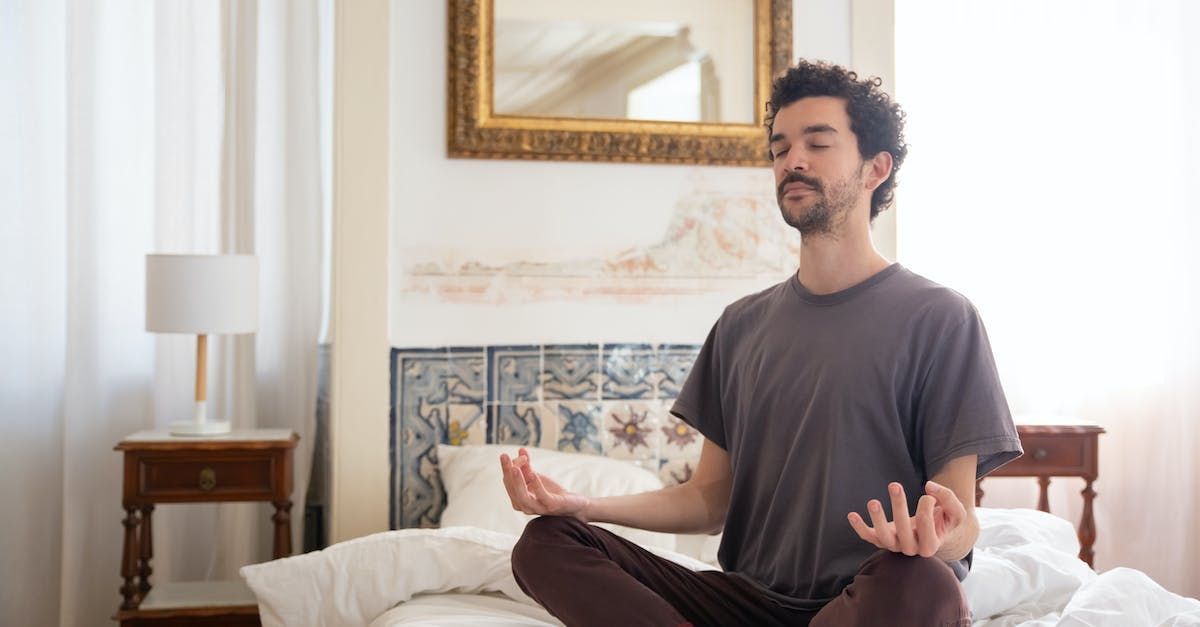How to Manage Morning Anxiety: Tips to Help You Feel Better Now
The mornings can be a stressful time for many of us, and often this anxiety can interfere with our day-to-day activities. Whether it's fear of an upcoming meeting, fear of the unknown, or just general unease, morning anxiety can be both debilitating and frustrating. In this blog post, we'll take a look at the causes of morning anxiety and discuss some strategies for managing it.
What is Morning Anxiety?
Morning Anxiety is when an individual experiences intense feelings of worry, fear, and dread when they wake up in the morning. It can be caused by a variety of factors, such as a lack of sleep, stress, or physical health issues. These feelings can be debilitating and can lead to difficulty in getting out of bed, concentrating on tasks, and engaging in daily activities. If you are experiencing morning anxiety, there are ways to manage it.
Lifestyle changes such as getting more sleep, increasing physical activity, and reducing stress can be effective in treating morning anxiety. If you are struggling with morning anxiety, know that you are not alone. There are treatments and resources available to help you manage your condition such as the nCourage app.
The Symptoms of Morning Anxiety
Many of us have experienced morning anxiety at one point or another, but for some, it can be a regular occurrence. Common symptoms include difficulty falling asleep or staying asleep, feeling exhausted all day, difficulty concentrating, racing thoughts, physical symptoms such as increased heart rate, sweating, trembling, or nausea, an overall feeling of fear or dread, and avoiding activities or situations that trigger anxiety.
Morning anxiety can also cause difficulty in making decisions and controlling emotions. Those who suffer from morning anxiety often feel panicked or helpless. It's important to understand that morning anxiety can be caused by a variety of things, including stress, traumatic events, or physical health problems.
If you are experiencing morning anxiety, there are a few things you can do to help manage it. First, it's important to address any underlying issues that may be causing the anxiety. Additionally, lifestyle changes, such as making sure you get enough sleep and engaging in relaxation techniques, can help reduce the symptoms of morning anxiety. Finally, it's important to practice self-care and actively work to reduce stress in your life.
The Most Common Causes of Morning Anxiety
Morning anxiety can be caused by a variety of factors, such as unrealistic expectations, fear of the unknown, lack of sleep, too much stress, unresolved issues, unhealthy habits, and negative thinking.
Unrealistic Expectations: Setting unrealistic goals or expectations for yourself can create a great deal of anxiety when starting a new day. Whether it is to accomplish too much in too little time or to please everyone around you, unrealistic expectations can cause you to feel overwhelmed and unsure of yourself.
Fear of the Unknown: Not knowing what lies ahead can create a great deal of stress and anxiety in the morning. It is natural to feel apprehensive about the day ahead, especially if you are not sure what the day will bring.
Lack of Sleep: Not getting enough sleep can cause you to wake up feeling anxious and unprepared for the day. Feeling exhausted and fatigued in the morning can make it difficult to face the day with confidence and can lead to feelings of anxiety.
Too Much Stress: If you are dealing with a lot of stress, it can be difficult to face the day without feeling anxious. Stress can cause you to feel overwhelmed and can make it hard to stay focused and productive.
Unresolved Issues: If you have unresolved issues or problems, they can contribute to morning anxiety. Not being able to find a resolution to a problem can leave you feeling frustrated and anxious.
Unhealthy Habits: Unhealthy habits, such as poor diet or lack of exercise, can lead to feelings of anxiety in the morning. Not taking care of your body can leave you feeling sluggish and unmotivated, leading to feelings of worry and dread.
Negative Mindset: A tendency to think negatively or imagine the worst-case scenario can lead to feelings of morning anxiety. If you focus on the negative possibilities of the day, it can be hard to find the motivation to get out of bed and face the day.
By understanding the causes of morning anxiety, you can take steps to reduce it. Taking care of your mental and physical health, setting realistic expectations, and focusing on the positive are all steps you can take to reduce the anxiety you feel in the morning. What cause or causes impact your morning anxiety?
How Do I Manage My Morning Anxiety?
Feeling anxious in the mornings can be tough, but you're not alone in this. Many people, both young and old, experience morning anxiety. It's essential to know that there are simple and helpful things you can do to stop it from taking over your day. First and foremost, try to maintain a consistent sleep schedule by going to bed at the same time every night. Getting enough sleep is crucial for your body and mind to feel rested and ready for the day ahead. When you wake up, give yourself a few extra minutes before rushing into your morning routine. Take a moment to breathe deeply and calmly; this can help you feel more centered and focused as you start your day.
Creating a morning routine can be a game-changer in managing your morning anxiety. Having a plan for your mornings can give you a sense of control and structure, making them feel less overwhelming. Think about the activities that bring you comfort and calmness. Maybe you enjoy having a healthy breakfast or spending a few minutes meditating. Perhaps writing in a journal to let out your thoughts and worries helps you release tension. Including these activities in your morning routine can help set a positive tone for the rest of your day. Keep in mind that it's okay if some mornings are more challenging than others. Be patient with yourself and remember that you're doing your best.
If you find that morning anxiety continues to be a significant challenge, don't hesitate to talk to someone you trust about how you're feeling. It could be a parent, a sibling, a friend, or a school counselor. Sharing your feelings and experiences with someone supportive can be incredibly helpful. They can offer a listening ear and understanding, and perhaps even share some strategies they've used to cope with anxiety. Remember, it's okay to ask for help when you need it. There's no shame in seeking support as you work through your feelings. Taking small steps each day to address your morning anxiety can make a big difference in managing it effectively. You are strong and capable, and with time and support, you can find ways to overcome your morning anxiety and start your days with more ease and confidence.
If you're struggling with morning anxiety, the nCourage app is here to lend a helping hand! This awesome app is designed especially for people like you who want to conquer their anxiety and start the day with confidence. Let's see how the nCourage app can make your mornings brighter.
The nCourage app is a great way to take control of your morning anxiety. Not only does it help you to recognize and manage your anxiety, but it also provides you with
the tools and support to start the day with a positive attitude. The app provides a range of features, such as audio and video lessons, breathing exercises, and guided meditations, that will help you to relax and stay focused. In addition, the app can also help you to create a personalized plan to better manage your anxiety in the morning. With the nCourage app, you can take steps to reduce your morning anxiety and make each day a little less stressful.




